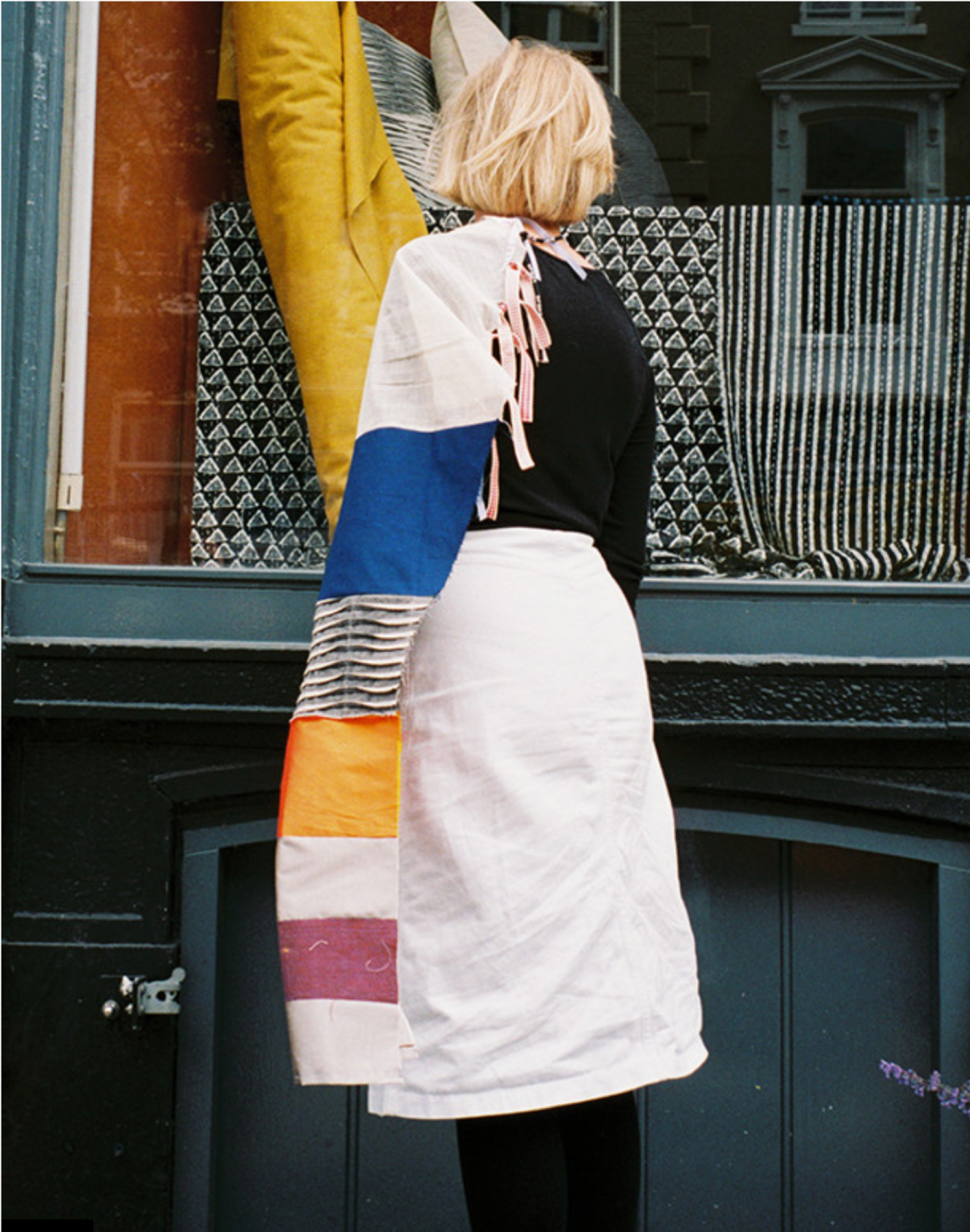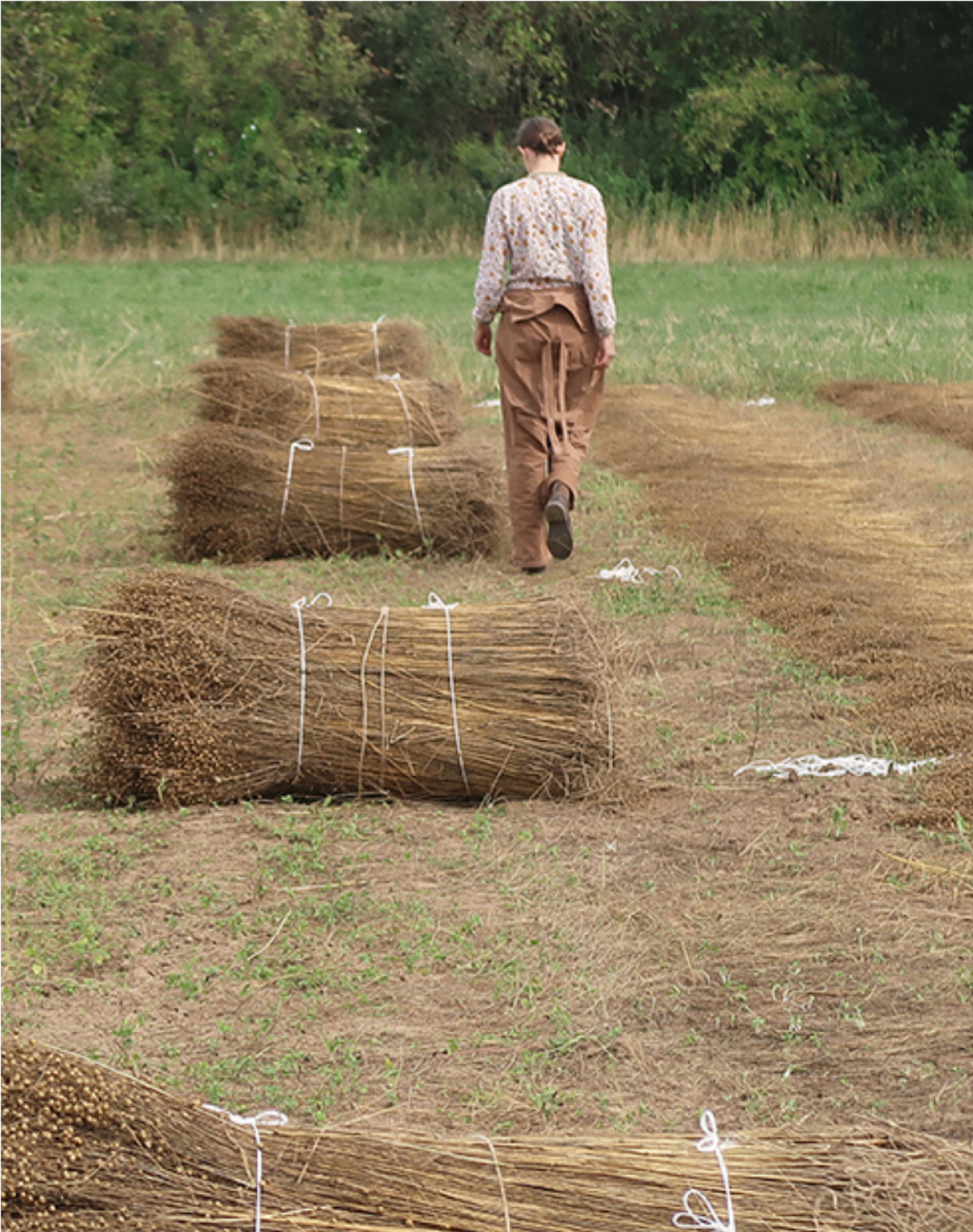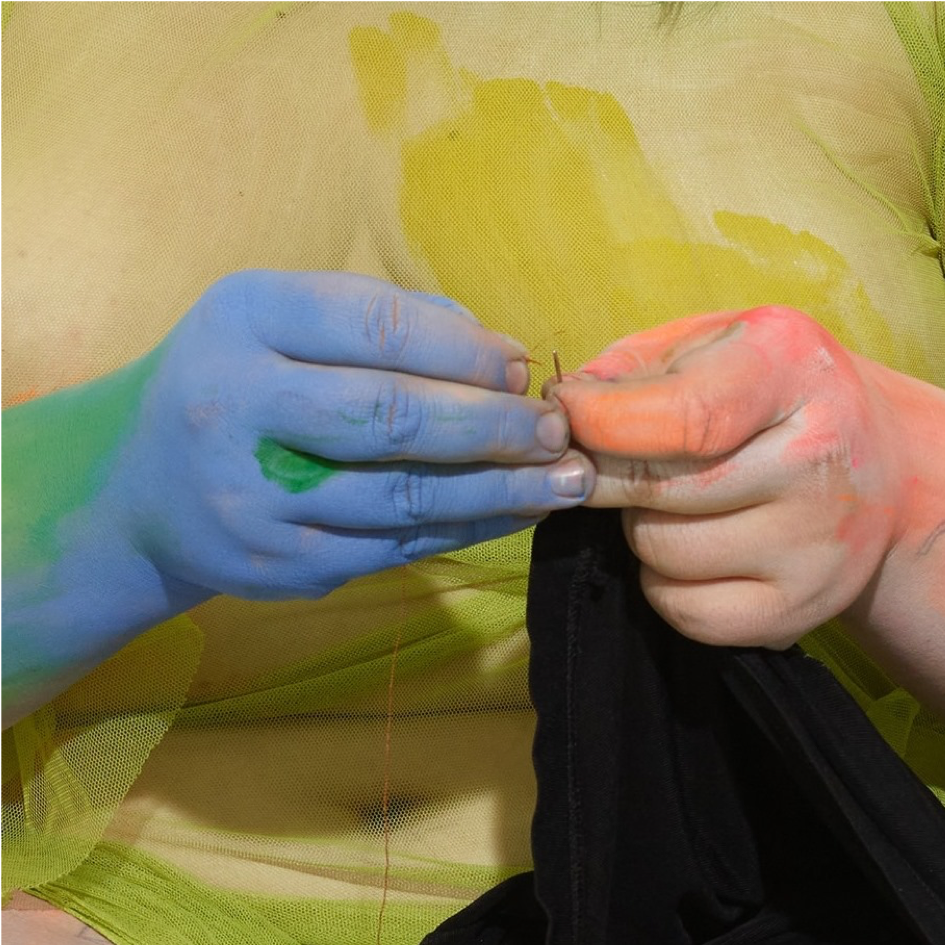During the Fashion Tales conference on June 17-19, Danielle Bruggeman presented a paper on human agency, collective making, participatory social practices, critical fashion and embodiment. Her paper explores three recent cases of critical fashion practices that aim to re-imagine fashion as an alternative system with more human agency. These practices also contribute to restoring our relationship to processes of making, to the maker, and to the actual matter and materiality of clothing - and to rethink the relationship between maker, object and wearer in a more equal way, as ‘hybrid agencies’ (Ingold 2015). The abstract of the paper is visible below.
We are also very excited that two alumni of our MA Fashion Strategy have been selected to present their papers during the conference:
CHINOUK FILIQUE DE MIRANDA - Fashioning the (false) political self through sharing —the fashion systems’ adaptation of the virtual panopticon
KARMEN SAMSON - Fake-authenticity for the sake of the new
Abstract
Starting from a critique of the untenable and inhumane systems at the center of our contemporary neo-liberal market-driven society and fashion industry, where human beings are often reduced to passive numbers, objects, and instruments of production, this paper explores three recent cases of critical fashion practices that aim to create more human agency in the field of fashion. In doing so, it highlights the importance of acknowledging the affective and embodied dimensions of all human beings involved, which is, as this paper argues, an important ethical act in reclaiming human agency.


The first case is the project ‘JOIN Collective Clothes’ for which designer Anouk Beckers developed a modular clothing system with an open source manual that facilitates collective practices of making. This project aims to transform fashion into a playful, inclusive system and offers the wearer more agency in how their clothes come-into-being. The second case is the ‘Feminist Needlework Party’, a political feminist movement that organizes regular gatherings during which women collectively repair textiles, mend clothes, and do needlework. This Party aims to develop a counternarrative by revaluing practices of care, maintenance and repair while collectively doing exercises of slowing down and experiencing embodiment. Thirdly, ‘The Linen Project’ is an interesting case of a participatory, community-driven social practice of organic flax cultivation, spinning yarns and local linen production. Based on a model of shared stewardship, the community works together in all phases of flax and linen production: from farming, harvesting to making textiles as a collective.

As this paper argues, by facilitating collective practices of making, all three cases help to re-imagine fashion as an alternative system with more human agency. These cases also contribute to restoring our relationship to processes of making, to the maker, and to the actual matter and materiality of clothing. They help to rethink the relationship between maker, object and wearer in a more equal way, as ‘hybrid agencies’ (Ingold 2015).
Moreover, by making fashion into a participatory social practice, these cases help to ‘open ideas for how to use clothing for more intimate bonds than mere consumption’ (Von Busch 2020). Moving beyond the logic of consumerism, these practices contribute to developing healthier, more intimate and affective relationships with clothing within a community. These are social practices that indeed help to practice human agency, which is especially urgent in these times in which systemic de-humanization and intersectional inequalities are ever more prominent.



